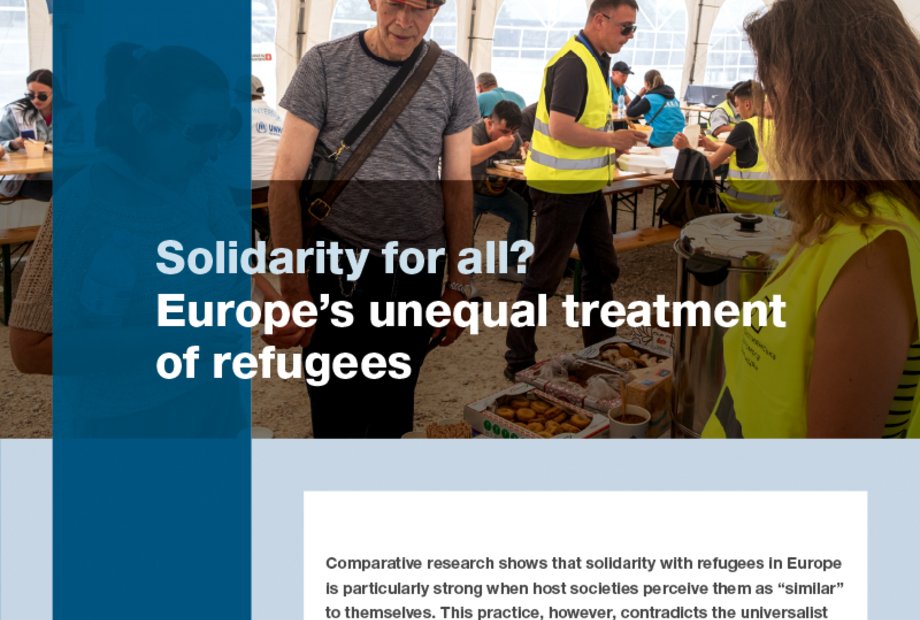It is much easier for refugees from Ukraine to arrive in the European Union than for those from other war zones. The EU has, for example, reduced requirements for obtaining residence permits, employment opportunities and freedom of movement within the European space for Ukrainian war refugees. The willingness to help this group of people remains high in European societies. However, this solidarity obscures the fact that the values upon which liberal democracy – and thus European identity – rests oblige both politics and society to treat all refugees equally, independent of where they come from. Equal treatment is a human right to which everybody is entitled.
In the new IFSH Policy Brief, Katharina Wuropulos, Teresa Koloma Beck and Alexia Hack show how refugees’ origins influence what kind of aid and support they can expect in European countries of arrival. The authors show that in everyday life, solidarity with refugees is particularly strong when host societies perceive them as "similar" to themselves. The authors call for a more critical reflection of such perceptions of similarity and their impact on refugee aid. They also suggest introducing corrective measures to help the European idea of equal dignity gain practical validity.






